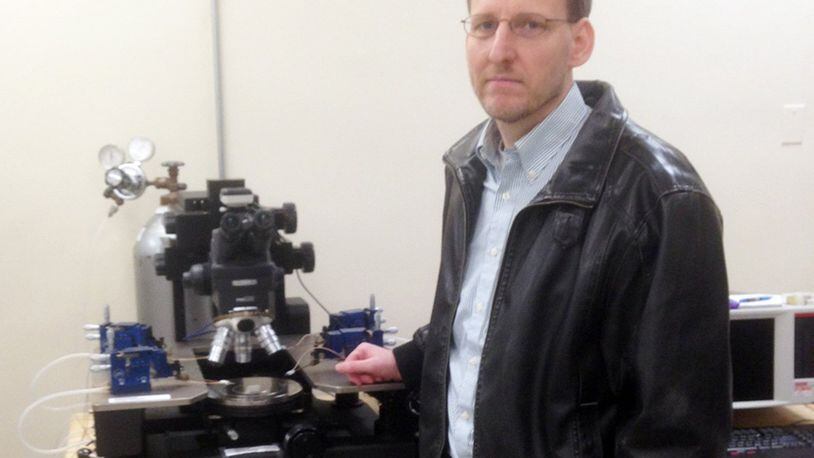Ostler earned a Master of Science degree in nuclear engineering and received the American Nuclear Society student chapter thesis award. He was also a distinguished graduate – an honor given to no more than 10 percent of the graduating class – recognizing those students who have excelled in the educational objectives of AFIT’s Graduate School of Engineering and Management.
The U.S. Air Force support of Ostler’s achievement represents the Air Force’s current focus on sustainment of nuclear operations and the challenges of maintaining the highly skilled civilian workforce necessary to do so.
The CDE program, managed by Headquarters, Air Force Personnel Center provides developmental education and leadership opportunities that will prepare Air Force personnel to anticipate and successfully meet challenges across the wide range of Air Force operations and missions. CDE includes more than 30 programs – one of which is the opportunity to earn a graduate degree from AFIT.
To participate in CDE programs, civilian applicants must be nominated by their local leadership. Ostler was working at the Air Force Nuclear Weapons Center at Kirtland Air Force Base, New Mexico, when his supervisor, Michael Martinez, and the Chief of the Science and Engineering Career Field Team at Air Staff Kalpesh Fifadara saw Ostler’s potential and predicted his success in graduate school even after a 20-year gap since his undergraduate degree.
Ostler moved his family to Ohio and began his studies at AFIT in 2016. As a civilian at a new base, Ostler quickly sought a place to belong and found a group of Army students who had also arrived early to start the nuclear engineering program. The new friendships made the transition easier, and the interaction with sister service members provided a unique component to his education.
“Everything about my experience here at AFIT has been great. It’s been hard work, of course, but a great experience. I appreciate the Air Force’s investment in my education and career. I have also made some good friends here,” said Ostler.
While at AFIT, Ostler researched methods to predict behavior of novel actinide-based neutron detectors for use in nuclear non-proliferation.
“Jay is the consummate professional scientist and leader. I expect that he will continue to make important contributions to the Air Force for many years,” said Dr. James Petrosky, nuclear engineering curriculum chair and Ostler’s research advisor.
For more information and application instructions for civilian developmental education, go to myPers at mypers.af.mil and scroll down to the force development link. For more information about graduate and professional continuing education at AFIT, visit www.AFIT.edu.
